Seven University of Utah graduate students have been offered awards in the National Science Foundation’s Graduate Research Fellowship Program (NSF GRFP) for 2025. The prestigious fellowship supports outstanding doctoral and research-based master’s students doing research in science, technology, engineering and mathematics, or STEM, disciplines.
Five of them hail from the John and Marcia Price College of Engineering:
Max Balitskiy, chemical engineering
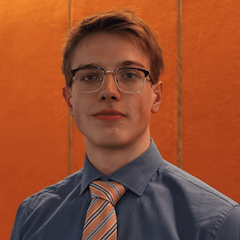 I will be discovering and inventing new protein catalysts—catalysts that are cheaper, more efficient, and more accessible than ever before. These novel, nifty, chemical machines will make plastic recycling profitable, personalized medicine readily accessible, and make specialty chemicals easier to create.
I will be discovering and inventing new protein catalysts—catalysts that are cheaper, more efficient, and more accessible than ever before. These novel, nifty, chemical machines will make plastic recycling profitable, personalized medicine readily accessible, and make specialty chemicals easier to create.
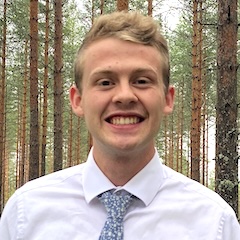 I use machine learning to achieve safe automation in robotic surgery. Beyond developing methods for autonomous surgical retraction, I create explanations for opaque learned models—providing insight that both informs future improvements and helps end users understand and trust the system. By focusing on transparency, my work bridges the gap between technical capability and real-world adoption in high-stakes medical environments.
I use machine learning to achieve safe automation in robotic surgery. Beyond developing methods for autonomous surgical retraction, I create explanations for opaque learned models—providing insight that both informs future improvements and helps end users understand and trust the system. By focusing on transparency, my work bridges the gap between technical capability and real-world adoption in high-stakes medical environments.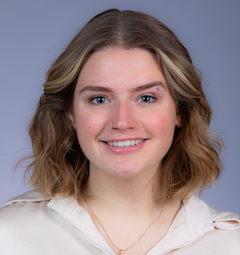 This NSF Fellowship will support my research on hydrogel materials for biomedical implants. I am developing long-lasting hydrogel coatings for next-generation brain-computer interfaces, with the goal of reducing the body’s immune response to these devices. By mitigating this reaction, the coatings aim to preserve surrounding tissue health and maintain device performance long-term.
This NSF Fellowship will support my research on hydrogel materials for biomedical implants. I am developing long-lasting hydrogel coatings for next-generation brain-computer interfaces, with the goal of reducing the body’s immune response to these devices. By mitigating this reaction, the coatings aim to preserve surrounding tissue health and maintain device performance long-term.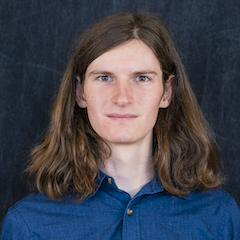 I’ve been doing research at the U using high-performance computing to study the electronic properties of organic materials, focusing on improving the efficiency of polymer solar cells. With the NSF-GRFP, I will be starting a Ph.D. program at UCLA, continuing to study computational material science in their Mechanical and Aerospace Engineering Program. My broad goal is to develop nanomaterials for renewable energy applications.
I’ve been doing research at the U using high-performance computing to study the electronic properties of organic materials, focusing on improving the efficiency of polymer solar cells. With the NSF-GRFP, I will be starting a Ph.D. program at UCLA, continuing to study computational material science in their Mechanical and Aerospace Engineering Program. My broad goal is to develop nanomaterials for renewable energy applications.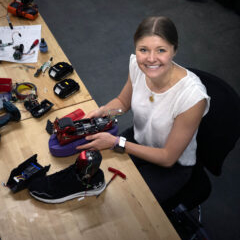 I will be investigating the impact of prosthetic devices on the biomechanics and mobility of individuals with lower-limb amputations. These devices provide powered assistance, which can enhance gait mechanics, increase efficiency and improve overall comfort when walking.
I will be investigating the impact of prosthetic devices on the biomechanics and mobility of individuals with lower-limb amputations. These devices provide powered assistance, which can enhance gait mechanics, increase efficiency and improve overall comfort when walking.